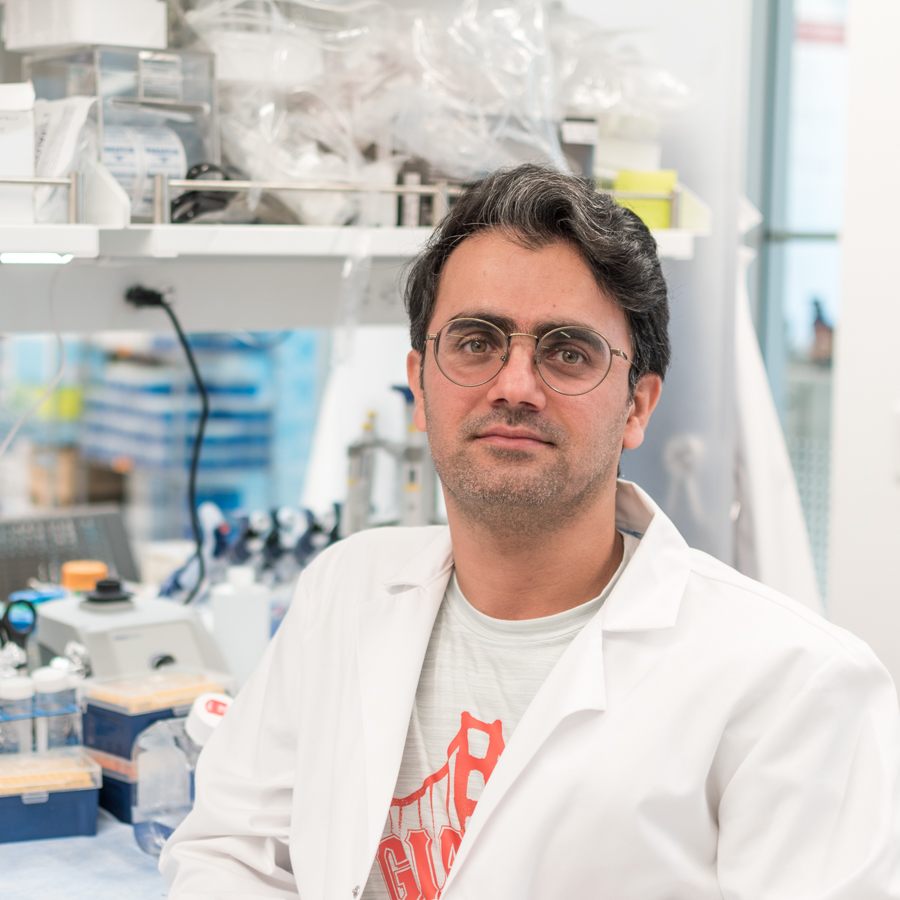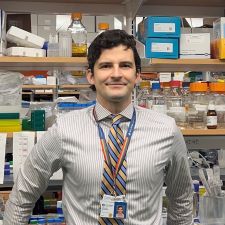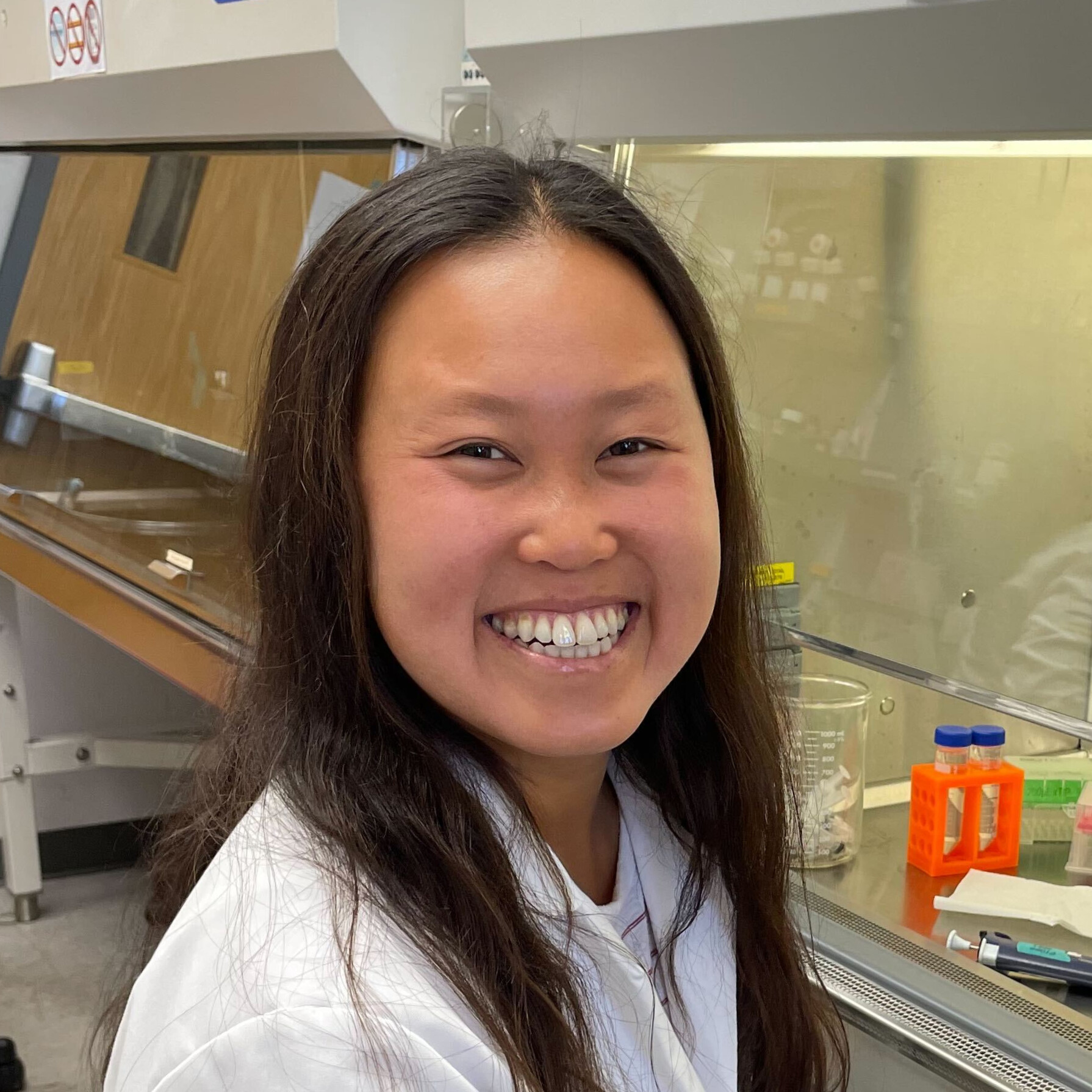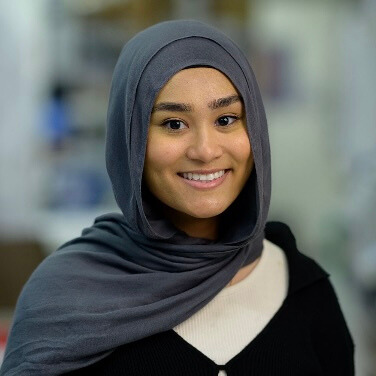Isabella [National Mah Jongg League Scholar] was born and raised in Puyallup, Washington. She graduated from Pacific Lutheran University, Tacoma, with a BS in Biological Sciences with minors in Chemistry and Business Administration. Her motivation to pursue cancer research stems from her own health struggles, which sparked a strong interest in human health and biology from an early age. Over time, that interest has evolved into a deep intellectual curiosity about the molecular mechanisms of cancer. During her undergraduate studies, she had the opportunity to work as a summer intern in the laboratory of Christina M. Termini, PhD, where she investigated how inhibiting isoprenoid production impacts hematopoietic stem cell (HSC) maintenance, expansion, and survival. Her ultimate goal is to contribute meaningfully to improving patient outcomes by developing safe, accessible, and effective cancer treatments. Outside the lab, she enjoys being outdoors, cooking, dancing, and spending quality time with her family.
Blood Cancers
Current Projects

Acute myeloid leukemia (AML) is an aggressive blood cancer, diagnosed in about 20,000 people in the U.S. each year. New targeted therapies have greatly expanded treatment options, particularly for older adults who cannot tolerate chemotherapy, but despite these advances, most patients with AML will experience relapse. Research has identified that mutations in the RAS signaling pathway are associated with relapse after targeted therapies. Dr. Anandappa aims to establish a role for RAS inhibitors in treating AML and elucidate the role of inflammation in RAS-mutated AML. She will use CRISPR to study over 300 genes involved in inflammatory signaling and determine if blocking them will increase response to treatment with a RAS inhibitor. The outcomes of this project will ultimately guide the design of combination regimens for the treatment of RAS-mutated AML.

A major cause of relapse after therapy is the persistence of measurable residual disease (MRD) cells—cancer cells that remain after treatment and eventually spread. Due to technical and logistical challenges in accessing and analyzing MRD cells, the molecular and cellular pathways that enable MRD progression remain poorly understood. Dr. Bachireddy will use innovative molecular tools to analyze tissue samples from blood cancer patients at a single-cell level to unlock insights into MRD progression. Using cutting-edge machine learning approaches, he will identify immunosuppressive mechanisms that may be targeted to halt MRD progression. Beyond these blood cancers, he aims to reveal organizing principles of MRD progression that are relevant across human cancers.

One of the persistent challenges in treating high-risk pediatric leukemia, particularly in cases of acute megakaryoblastic leukemia (AMKL), is the high incidence of relapse due to resistance to standard treatments such as chemotherapy and bone marrow transplantation. T cell therapy has shown potential in treating various types of leukemia, offering the prospect of overcoming mechanisms that tumor cells employ to evade traditional therapies. However, a significant challenge in T cell therapy for AMKL lies in identifying T cells that are able to recognize and target leukemia cells specifically. Dr. Balood’s research is dedicated to advancing T cell therapy for AMKL. He plans to test and identify T cell clones that specifically recognize and eliminate leukemia cells with the goal of translating these findings into an effective T cell therapy with minimal toxicity in leukemia patients. Dr. Balood received his PhD from University of Montreal School of Medicine, Montreal, his MS from Tarbiat Modares University School of Medicine, Tehran, and his BS from Shahid Chamran University of Ahvaz, Ahvaz.

Dr. Bhansali [Damon Runyon-Lois A. Cinelli Awardee supported by the Cinelli Family Foundation] is studying how epigenetic processes—specifically the three-dimensional folding of DNA—promote the development, growth, and survival of cancers. His research focuses on T-cell acute lymphoblastic leukemia (T-ALL), an aggressive blood cancer affecting both children and adults for which traditional chemotherapy remains the mainstay of treatment. LDB1 is a protein involved in the process of DNA folding that partners with another protein called LMO2, which is highly expressed in up to 75% of T-ALL. Dr. Bhansali hypothesizes that LDB1/LMO2 rewire the normal gene expression machinery in our blood cells in a way that activates cancer-promoting genes to cause leukemia. Targeting this process may shed light on new treatment avenues and ways to overcome resistance to treatment.

Myeloid neoplasms (MN), including acute myeloid leukemia and myelodysplastic syndrome, are lethal blood cancers. The genetic mutations in the blood that lead to MN can occur years before diagnosis and maintain almost normal function before transformation. Certain mutations, including those in the gene IDH2, have been identified as high-risk for developing MN. Individuals with a reduction in the number of mature blood cells (cytopenias) who harbor acquired mutations in their blood, yet do not meet criteria for a cancer diagnosis, have a condition called cytopenias of undetermined significance (CCUS). These individuals almost invariably develop MN. Dr. Bolton will conduct a clinical trial to evaluate whether the IDH2 inhibitor enasidenib can be used as a therapy for CCUS. She will assess mechanisms of resistance and determine whether enasidenib can prevent the development of MN. This represents the first use of genetically targeted therapy for cancer prevention.

Acute myeloid leukemia (AML) with rearrangements of the KMT2A gene (KMT2A-r) or NPM1 mutation (NPM1m) affect children and adults and can be difficult to treat even with highly intensive therapy. Targeted, less toxic therapies are urgently needed. Menin inhibitors are novel small molecules that block a critical interaction between the KMT2A protein and another protein called menin. This protein-protein interaction is essential in sustaining both KMT2A-r and NPM1m AML. Menin inhibitors have now entered clinical trials for children and adults have shown promising results. However, it has also been demonstrated that up to 40% of patients will develop resistance to a menin inhibitor when it is given alone due to a mutation in the MEN1 gene, which encodes the protein menin. Dr. Bourgeois is investigating whether combination therapy can prevent or overcome MEN1 mutations that confer resistance to menin inhibitors. Additionally, he is developing models to understand how and why resistance to menin inhibitors is sometimes driven by MEN1 mutations, but other times not. The overarching goal of the project is to identify combination therapies that prevent and overcome menin inhibitor resistance and to better understand the different ways in which resistance to menin inhibitors develops.

Dr. Chan’s [Sijbrandij Foundation Fellow] research focuses on gamma delta T cells, an unusual and understudied population of immune cells. While gamma delta T cells have strong antitumor activity, they are most highly stimulated not by cancer cells but by signals produced by microorganisms. Dr. Chan’s work examines the mechanisms by which gamma delta T cells detect and respond to leukemia versus pathogenic microorganisms, and how infection with these microorganisms subsequently impacts the trajectory of leukemia. This is particularly relevant to patients undergoing conventional cancer treatments (e.g., chemotherapy) that suppress the immune system, rendering them susceptible to infection. Furthermore, gamma delta T cells are capable of both rapid and long-term responses against their targets, which positions them as a tool to treat initial cancer as well as prevent disease recurrence. Dr. Chan received her PhD from Yale University, New Haven, and her BS from the University of California, Los Angeles.

Subyeta is a graduate of the Macaulay Honors College at Hunter College, New York, where she earned a BA in Biological Sciences with a minor in Public Health. Born and raised in New York City, Subyeta’s personal medical experiences exposed her to the profound impact of medicine and scientific discovery. These experiences, coupled with clinical volunteer work in hospitals and nursing homes, solidified her aspiration to pursue a career that intersects both cancer research and medicine. She explored this passion through research experiences in Dr. Ross Levine’s lab at Memorial Sloan Kettering Cancer Center, where she contributed to projects focused on acute myeloid leukemia. In the summer of 2024, she deepened her research experience as a Harvard-Amgen Scholar at Boston Children’s Hospital, studying clonal hematopoiesis in the lab of Dr. Vijay G. Sankaran, current Sponsor to a Damon Runyon Fellow and Damon Runyon-St. Jude Fellow. Subyeta’s research efforts were recognized with the Horace W. Goldsmith Scholar Award from Macaulay Honors College. In her free time, she enjoys exploring New York City, building Legos, and unwinding with a good movie.

About 70% of pediatric leukemias and up to 10% of adult leukemias are caused by a genetic disruption in which the mixed lineage leukemia (MLL) 1 gene breaks off and attaches to a different chromosome. This event, known as a chromosomal translocation, gives rise to a distinct subset of leukemias called MLL-rearranged acute myeloid leukemia (AML). Studies have shown that a protein called KMT2D plays a critical role in the development of MLL-rearranged AML. However, the potential of KMT2D as a novel therapeutic target remains underexplored. Dr. Cruz [The Mark Foundation for Cancer Research Physician-Scientist] will use molecular biology, epigenetic, and biochemistry approaches to describe the precise molecular mechanism by which KMT2D regulates gene expression in MLL-rearranged AML. Her work will provide insight into potentially targetable proteins for this aggressive blood cancer.







